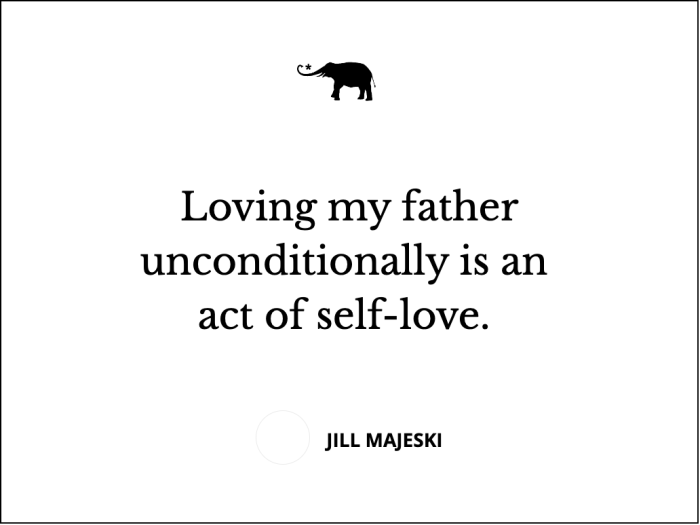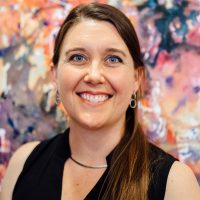{*Did you know you can write on Elephant? Here’s how—big changes: How to Write & Make Money or at least Be of Benefit on Elephant. ~ Waylon}
My father, once a capable and independent man, now drifts in the dense fog of dementia.
His mind, once sharp, is clouded, leaving him vulnerable and unpredictable. At 77, this debilitating disease has reshaped his personality and is slowly stripping him of his autonomy. Witnessing this slow descent has been heartbreaking, yet it has prompted me to reaffirm a vow I made long ago.
In May 2024, his wife called me, desperate to talk. It wasn’t just to inform me of his new concerning behaviors—it was a call seeking support. My father was falling prey to online scammers, buying dubious brain supplements, neglecting his medication, and ending up in the Emergency Room multiple times. His safety was at risk, and I needed to act.
My mind spun with worry; my body was in motion, yet I was frozen in doubt. Have you ever felt a knot in your stomach or tears in your eyes watching a loved one struggle?
I knew I had to go home. His wife needed a break, and I had to be there. I cleared my calendar, booked a flight from Mumbai to Chicago, and planned a three-week stay.
Thankfully, his health has stabilized for now. But I’m left wondering how I navigate this from so far away. Reflecting on it, I realized I had faced turning points with my father before. I had made a decision years ago that guided me then and can continue to guide me now.
I made a decision in 2005 and took a vow of ultimate forgiveness—to forgive my father unconditionally for a lifetime. This commitment shaped our relationship over the next twenty years. It released the past and created space for a future with him. Now, as dementia pulls him deeper into its haze, I find myself recalling and recommitting to that promise.
Ultimate Forgiveness: How It Began
In 2005, during a self-imposed silent retreat, I struggled to find my footing in Mumbai. I felt my inner world collapsing, and long-buried pain resurfaced: my strained relationship with my father.
I had heard of an ashram in Pune from a yoga instructor. He described a vibrant commune in Koregaon Park. I went there without preparation, stepping into India’s spiritual buffet unaware. Within those protective ashram walls, my heart whispered a truth I wasn’t ready to hear: if my relationship with my father was to survive, it was up to me.
I was surprised that the root of my burden stretched 9,000 miles back home to Milwaukee, Wisconsin. How could my father, so physically distant, show up so vividly in my meditation practice, asking to be healed?
I was confronted with a choice: to let go of my resentments or rekindle the relationship.
What did I end up choosing?
During that silence retreat, memories of painful interactions surfaced. I saw myself as a child. Our relationship had always been strained, with disagreements escalating into arguments since I was ten.
He would comment negatively or unkindly about others, saying, “How stupid can you be? These people are so dumb!”
I would feel compelled to rebut, “Don’t speak harshly to others.” His eyes would bulge with irritation, and I would retreat to the TV room to escape the tension.
I wish I had discovered this approach so many years sooner.
What I now call ultimate forgiveness—both for him and for myself. It was a lifelong practice, a mental boomerang I would repeat over and over.
It wasn’t just about healing the past. It was about creating space for our future.
The Power of Forgiveness in Action
For nearly 20 years now, my vow has been my lighthouse, guiding our relationship. It’s become second nature, helping me navigate often rocky interactions.
When his moods shift or arguments brew, I lean on forgiveness. His language, repetitive topics, and familiar patterns no longer held me hostage in reactivity. Embracing my father instead of resisting him allowed our relationship to grow.
The boundaries I’ve set protect me without distancing me from him. From a place of safety, appreciation grew for who he was as a living almanac and avid bird watcher rather than dwelling on his habitual behavior.
Over the years, he has shown softer, more sentimental moments, fostering the capacity for genuine closeness. On my birthday, he recalls the cold, wet February day I was born and how proud he was to bring me home from the hospital. In celebration, he proudly remembers that he was bringing me home to our newly constructed home, which had just been completed the previous fall in time for winter. The driveway was still dirt and muddy, as the asphalt would be poured after the long Wisconsin winter subsided.
Dementia’s Changes & Basic Goodness
A dementia care specialist told me, “Your father’s brain is broken. The wires are misfiring, and there’s nothing we can do to fix it.”
Public outbursts, paranoia, and hidden objects are now part of my father’s routine. Mobile phones and checkbooks disappear, only to be found weeks later. His personality shifts—sometimes softer with old sentimental memories, occasionally confused and edgy. I ask myself, are these changing behaviors him, his personality, or his condition?
Chögyam Trungpa’s teaching on basic goodness guides: my father is still a good human at his core and essence. Especially when I think of his capacity to spend hours teaching me to apply linseed seed oil to woodwork, drive tractors, or plant trees.
My vow echoes as I seek to bridge the gap between us and shield me from the despair of seeing him slip away as his memories fade. In these moments, my vow grounds me, “It’s okay. Hold space for your father. You’re his daughter.”
Loving him unconditionally is an act of self-love.
Embracing the Obstacle as the Path
I once heard Jetsunma Tenzin Palmo, a British Tibetian Buddhist nun, speak on the Lojong text, The Eight Verses of Mind Training. One teaching struck me: obstacles—whether in people or situations—are growth opportunities. Challenges, however frustrating, are part of our path to awakening.
Dementia is my father’s obstacle, and now it’s mine. His behavior doesn’t define him; it reminds me to forgive and practice. This is another chance to forgive.
Final Thought
I recommit to my vow from nearly two decades ago: to forgive my father fully and unconditionally for his entire life.
There are no clauses, no exemptions—only the courage to weather the raging storm of dementia again, and again.
I am letting love, patience, and compassion shine through the clouds. Forgiveness is my anchor, no matter what happens in the future.
Whether or not we choose our parents before birth, life is full of lessons. If you are facing a struggle, What vow will you take that will light a path forward?
~













Read 16 comments and reply